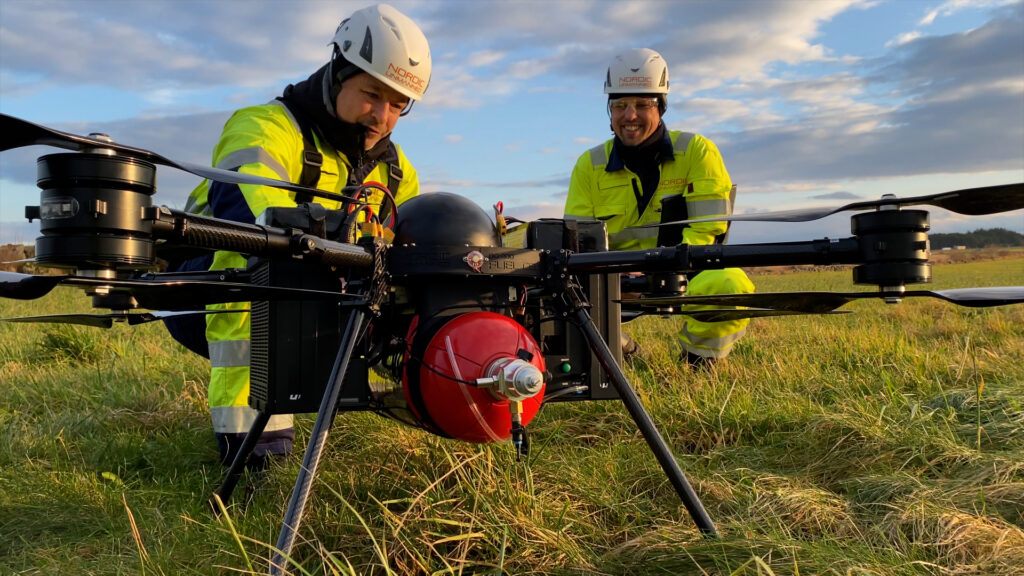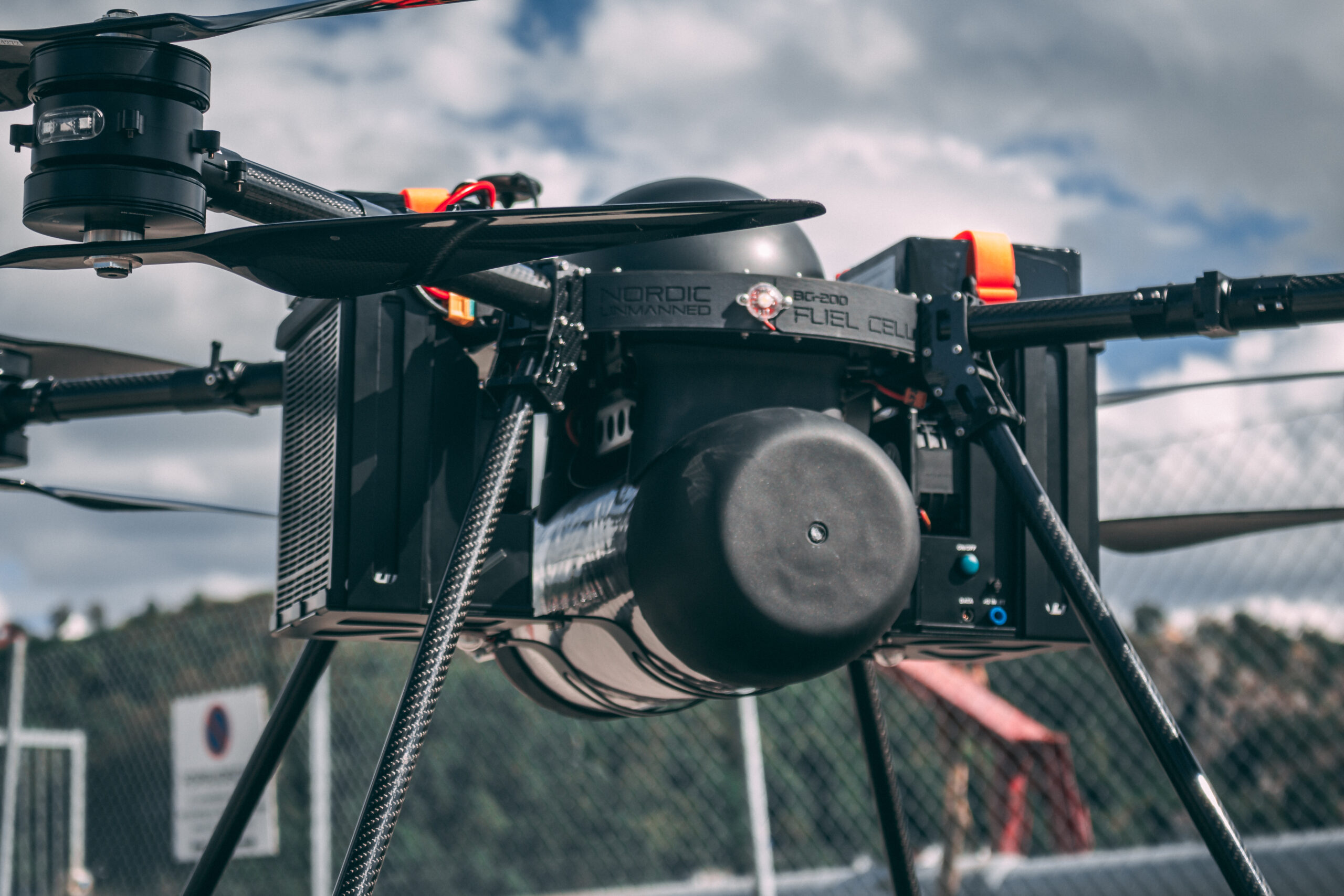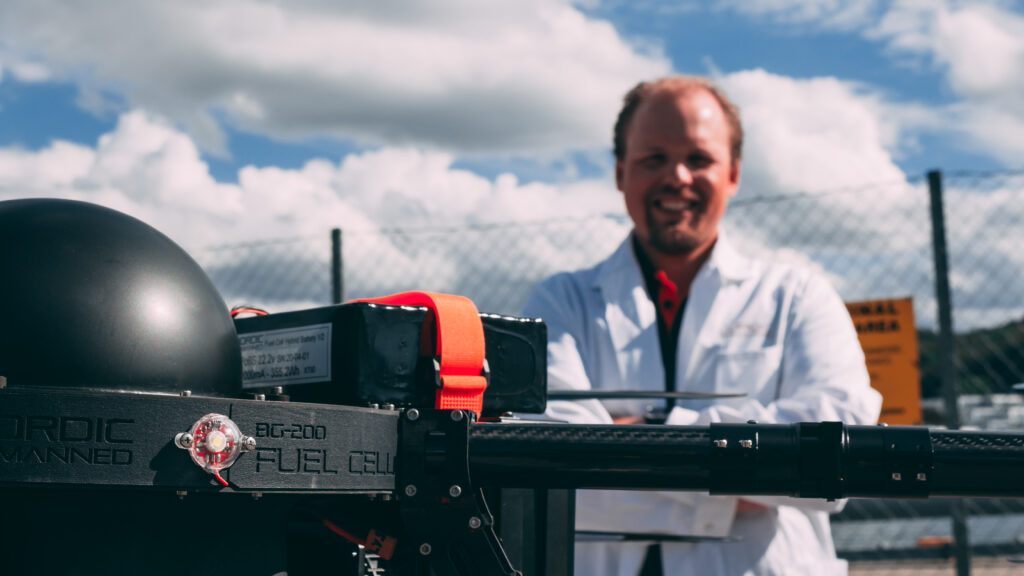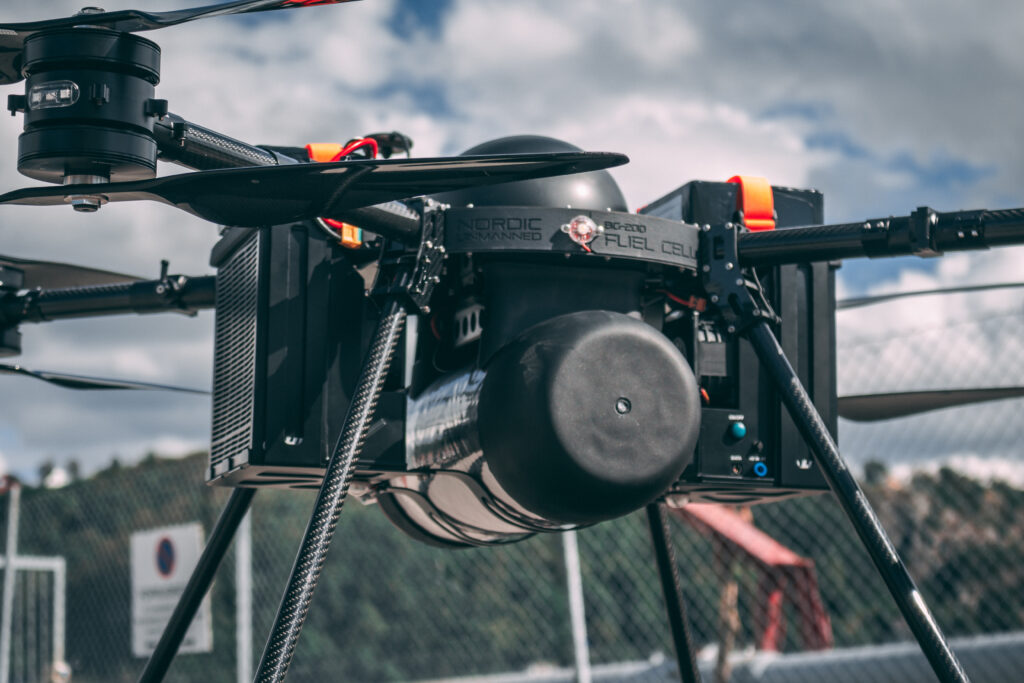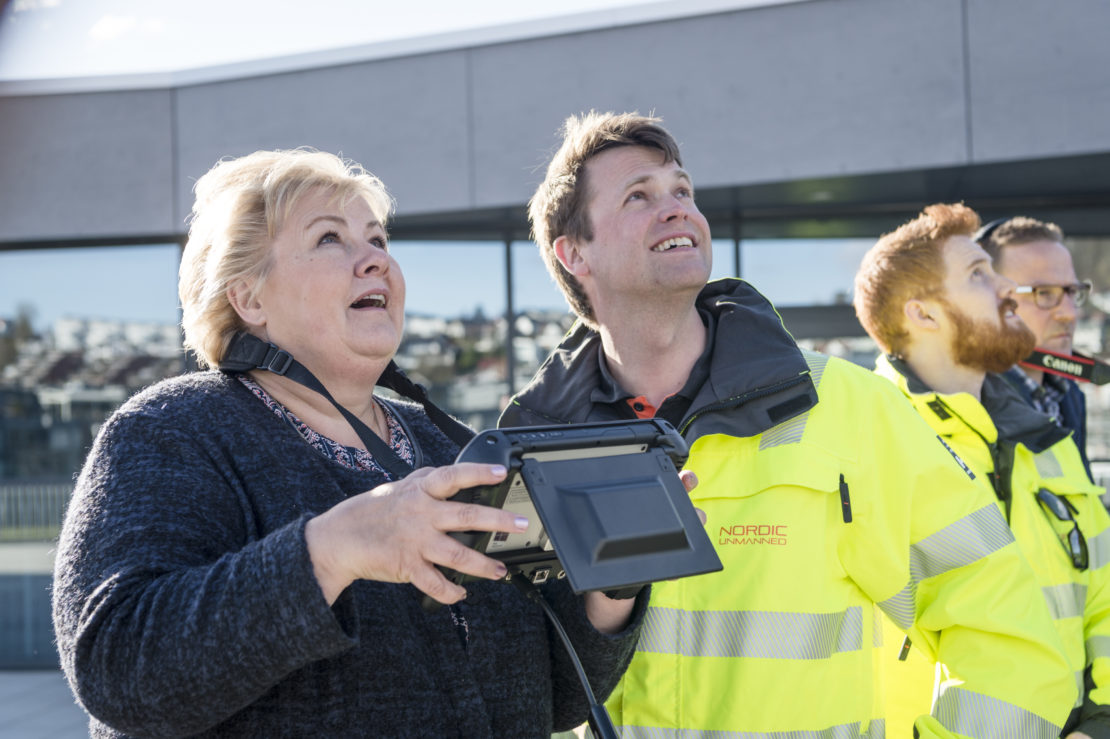In December 2020, Nordic Unmanned carried out the first hydrogen powered drone flight in Scandinavia. Jørgen Apeland, R&D engineer and PhD. student at Nordic Unmanned, takes us through the project and future opportunities of utilizing hydrogen fuel cells in unmanned aviation.
Hydrogen – a solution for the future
Hydrogen has been gaining a lot of attention for its prospects to be a part of the solution to a more environmentally friendly and sustainable energy landscape. In this report, DNV GL dives into hydrogen as an energy carrier. EU has also published a very ambitious strategy for hydrogen.
A recent study on hydrogen powered aviation found that:
“…, as a primary energy source for propulsion, either for fuel cells, direct burn-in thermal (gas turbine) engines or as a building block for synthetic liquid fuels – could feasibly power aircraft with entry into service by 2035 for short-range aircraft. Costing less than €18 [$20] extra per person on a short-range flight, and reducing climate impact by 50 to 90%, hydrogen could play a central role in the future mix of aircraft and propulsion technologies.”
Airbus is really ambitious and has pointed towards a 2035 goal for putting zero-emission aircraft into service. They are pursuing three hydrogen-based concepts.
The potential for the Staaker BG-200 is doubling the endurance, which can improve operational efficiency and range. This might enable certain applications where mission endurance and range are essential, like beyond visual-line of sight (BVLOS) operations for logistics, search and rescue, and inspections. Thus, the value proposition of multirotor drones can be significantly improved, closing the capability and performance gap between certain fixed-wing UAV platforms. Fuel cells also offer the benefits of no emissions, low noise profile, and mechanical vibration challenges compared to other high-endurance options.
Staaker BG-200 FC Prototype
PEM fuel cells use hydrogen gas and ambient oxygen to produce electric power. The waste products are water and heat. The Staaker BG-200 Fuel Cell prototype uses a 2 kW fuel cell system and a 7.2 L pressure vessel with 300 bar hydrogen. With a 9 L pressure vessel, an endurance of 120 minutes can be achieved. The goal is to have the fuel cell system as a “high endurance module” that can be installed on any “fuel cell ready” Staaker BG-200.
Research and Media Coverage
As a part of the research project, Ph.D. candidate Jørgen Apeland had a research stay with FFI – The Norwegian Defense Research Establishment. See the online article about his stay here
Teknisk Ukeblad wrote an extensive article about the flight, which included an interview with the CEO of Nordic Unmanend, Knut Roar Wiig
The research project has currently resulted in these relevant papers:
J. Apeland, D. Pavlou, and T. Hemmingsen, “Suitability Analysis of Implementing a Fuel Cell on a Multirotor Drone,” Journal of Aerospace Technology and Management, vol. 12, 2020, doi: https://doi.org/10.5028/jatm.v12.1172
J. Apeland, D. Pavlou, and T. Hemmingsen, “State-of-Technology and Barriers for Adoption of Fuel Cell Powered Multirotor Drones,” presented at the 2020 International Conference on Unmanned Aircraft Systems (ICUAS), Athens, Greece, 2020, doi: https://doi.org/10.1109/ICUAS48674.2020.9213971
Future Opportunities
The current project will conclude in 2021, and the way forward will be decided based on the findings and experiences made. If the technology is found to be viable and provide value in practice, Nordic Unmanned intends to further develop the Staaker BG-200 FC for the commercial market and use it for in-house operations. It might also be possible that further research efforts will be initiated to address some of the main constraints and challenges to further improve the value proposition.
Nordic Unmanned is looking to team up with potential users, customers, and technology providers to bring the best end-to-end solutions to the market and address business opportunities.
We would also be open to provide consulting services to share our expertise. For any fuel cell related queries, do not hesitate to reach out to:
Jørgen Apeland
R&D Engineer
ja@nordicunmanned.com
